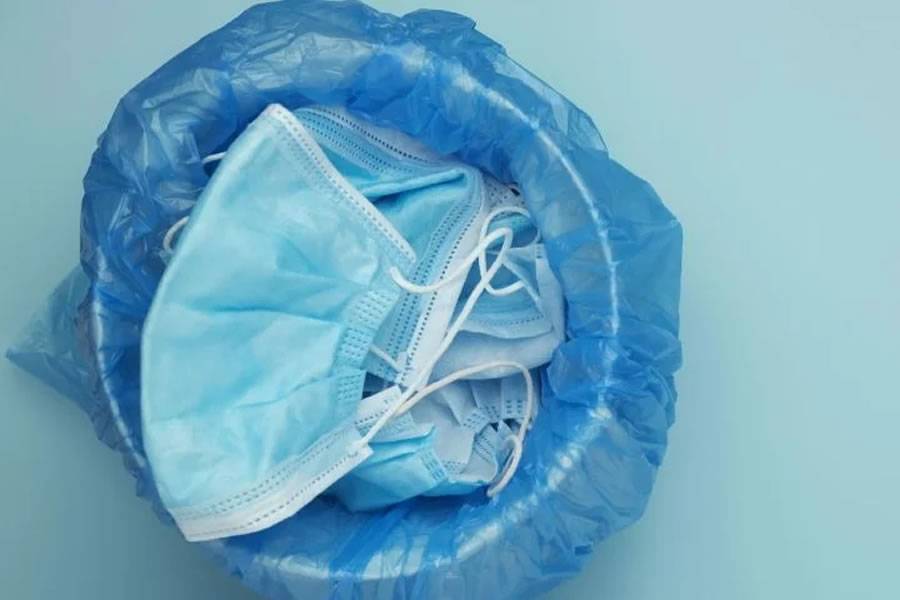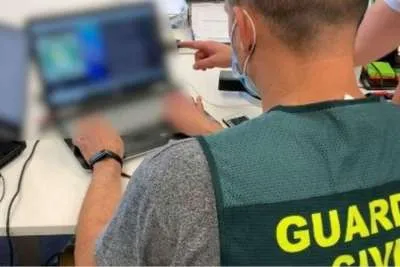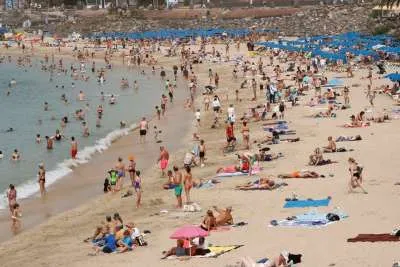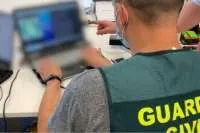The Government will officially approve the end of wearing masks indoors today
- 19-04-2022
- National
- Canarian Weekly
This afternoon (Tuesday) the Council of Ministers will officially approve the elimination of the mandatory use of masks in interior spaces, except in nursing homes, medical/health centres, pharmacies, and in means of transport.
This will come into effect from tomorrow (Wednesday) after being published in the BOE, with recommendations of places where it should be worn, i.e. in closed spaces for public use, such as:
- shops (shopping centres, supermarkets or small businesses);
- closed spaces where people spend time without eating or drinking (cinemas, theatres, concert halls and museums)
- and in closed spaces where people spend time eating and drinking (bars, restaurants and nightlife venues).
Businesses will also have the power to decide if staff and customers should continue wearing them on their premises if they feel they are at risk of infection.
In fact, experts believe that masks will ‘hardly disappear’ from many public spaces because their use has proven to be effective in curbing the transmission of any respiratory infection, including the flu virus, which is why it barely circulated in 2021.
"Before the pandemic, the use of masks was already recommended when a person had symptoms of respiratory infection, whether it was the flu or a simple cold," explains Eva Elisa Álvarez from the Preventive Medicine and Public Health Committee, “but it was never implemented in Europe, while in certain Asian countries it was common to see people wearing a face mask to avoid transmitting a respiratory disease or to protect themselves from seasonal viruses.”
Two years of mandatory use:
The use of masks became widespread when it was proven that asymptomatic people could transmit the coronavirus through tiny aerosol droplets. In fact, since May 20th 2020, the Spanish Government declared its mandatory use whenever social distancing of two metres wasn’t possible and in closed public spaces.
The obligatory use of masks outdoors was lifted on February 9th of this year, but indoors it remains until tomorrow, when the royal decree comes into force. "It is a preventive measure that would be very good if it stayed for people with symptoms of respiratory infection to avoid its transmission," said Álvarez.
In fact, Álvarez maintains that the population over 65 years of age, or the immunosuppressed, should continue to use them while we are still in a pandemic. The vulnerable population is recommended to continue using all possible barriers against the virus, including:
- being vaccinated and having boosters.
- by avoiding being in closed places or places with little ventilation.
- by being in the vicinity of crowds or large groups of people.
- by always wearing a mask, especially in winter or if you have a cold, flu, or symptoms of respiratory infection.
“We are going to continue seeing masks, people wearing masks, and have places with recommended and obligatory use of masks,“ says Álvarez. “There are people who still feel insecure. We will have to get used to living with people who prefer to keep their distance, prefer being in outdoor spaces, and who prefer to wear a mask.”
“This will be their decision, so we should not see them as ‘strange’, and should respect their decision as many people are aware of the role of masks to avoid becoming infected and infecting others.”
Professor of Preventive Medicine and Public Health, Lluís Serra Majem, agrees with her. “Masks will continue to be worn by people with allergies or with respiratory symptoms. We have learned that we are capable of preventing the flu and many other diseases that we assumed were inevitable by using them” he said about the change in habits that the pandemic has caused, such as hand hygiene.
Serra believes that the abolition of the mandatory use of masks indoors has come at the right time. “It is not a hasty decision, and it is not going to be done suddenly. In addition, there is always the possibility of going back if necessary,” he said, adding “It is clear that prevention is important, but it is also important to see people’s faces and smiles, especially as sometimes we haven’t recognised people we know with a mask on!”
Other articles that may interest you...
Trending
Most Read Articles
Featured Videos
TributoFest: Michael Buble promo 14.02.2026
- 30-01-2026
TEAs 2025 Highlights
- 17-11-2025


























































